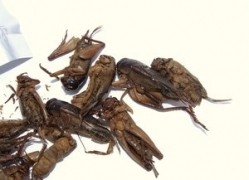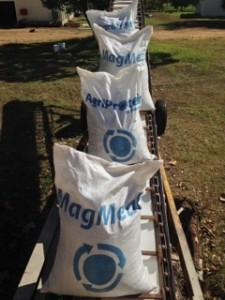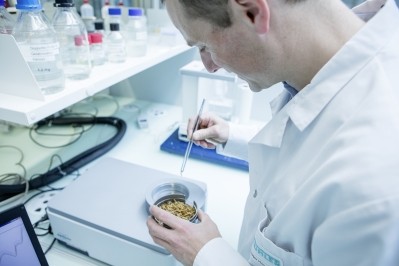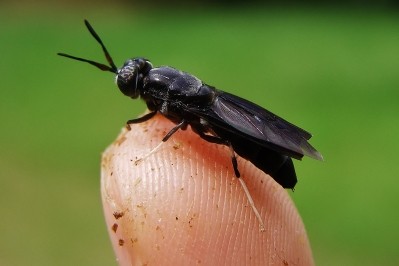Safety evaluation of insects for feed - EFSA scientists want terms of reference reviewed

The Directorate General for Health and Consumers (DG Sanco) of the EU Commission is developing policy in the area of insect derived protein and is funding a research project – PROteINSECT- to explore the feasibility of such a protein source in fish, poultry and pig feed.
In this context, it sent a request to the European Food Safety Authority (EFSA), in May, seeking an opinion on the microbial, chemical and environmental hazards linked to insects in food and feed, relative to the risks posed by other protein sources used by the sectors.
And DG Sanco wants the assessment to be finalized by next June.
A spokesperson for EFSA told feednavigator today: “Members of the Scientific Committee, at the open plenary earlier this month, said they wished to have clarification on one or two points [in the terms of reference] such as whether the mandate is about whole insects or insects as a compound used in food or feed.
The deadline of mid-2015 may also be part of the discussions with the Commission.”
The terms of reference from DG Sanco, as they currently stand, say that the safety assessment should look at:
- the farming of insects,
- the production process including the feedstock for the insects,
- the processing of insects to insect products, and
- the consumption of the products by pets, livestock and humans, taking into account their composition and the potential microbial and chemical contamination.
DG Sanco also narrowed down the number of insect species to be assessed to those that have already been reported to have the biggest potential for use in feed and food in the EU such as the common housefly, black soldier fly, mealworm, and the house cricket, among others.
Sense of the absurd
Professor Arnold van Huis, tropical entomologist from Wageningen University, said the interest in the use of insects for food and feed "is growing exponentially” but the regulations are lagging behind.
He claims there is a sense of the absurd about the current legislative landscape around insects, which were given the green light for use in feed for aquaculture in the EU in June last year but are not permitted for use in pig and poultry feed yet.
Speaking to this publication in May, he said:
“Free roaming chickens eat non-certified insects while we propose to feed them with certified ones.
You are not allowed to slaughter your animals on the farm where you raise them – and as insects are animals, this means you need a slaughter house for insects – it’s a real quandary.
Furthermore, companies wanting to develop insect feed for fish are holding off on scaling up production while waiting for more legislative clarity on the slaughter side.”
World’s largest fly farm
Meanwhile, May saw work beginning on the world’s largest fly farm, the $11m investment backed AgriProtein factory in Cape Town, South Africa, which some experts say could revolutionize the animal feed sector by producing a feed 15% cheaper than fishmeal.
The waste-to-protein process used involves over eight billion flies producing protein-rich larvae fed on organic waste.
The larvae are harvested and dried to become a maggot meal for chickens, pigs and fish, MagMeal, or an extruded oil for use in pig feed, MagOil.
David Drew, founder and managing director of AgriProtein, told us the new fly farm is likely to be on stream in the second quarter of 2015, but “exactly when depends on permits and licenses.”
Roll-out of 40 more farms
When up and running, it will consist of 8,200 square meters on a 20,000 square hectare site, and is the first in a planned roll-out of 40 such farms.
“We are already looking for a second factory in South Africa and we hope to identify five more sites in 2015. We have had late stage interest from the US, Asia and the EU,” said Drew.
AgriProtein will rear three types of flies on the farm including the house fly, blow fly and soldier fly.
The Cape Town operation, said the MD, will process 110 tons of waste into 24 tons of larvae on a daily basis – that is processed into seven tons of MagMeal and three tons of MagOil per day.
“We match available waste types to fly species,” said Drew. “Waste varies throughout the year in our region, which is a big fruit and wine growing area, but pre consumer food waste and mixed organics are our year round waste staples.”
The managing director said the firm has spent five years conducting research from microbiology laboratory assays to poultry trials with “outstanding results”.
And its MagMeal goes through a heating and cleaning processes to ensure it is “free of any potential risk.”
The company will initially supply the South African market and expects to achieve European acceptance as an animal feed within 24 months.
“The US is open for business with some restrictions on certain wastes used, and the pet food industry is more or less completely market ready,” said Drew.














